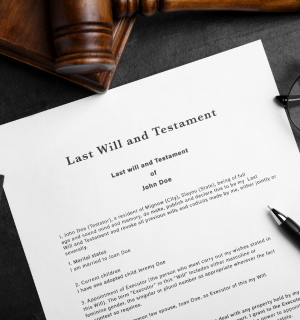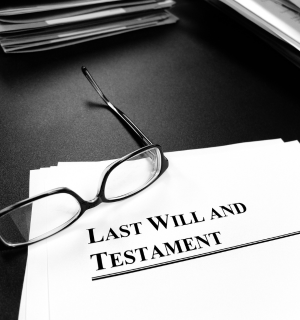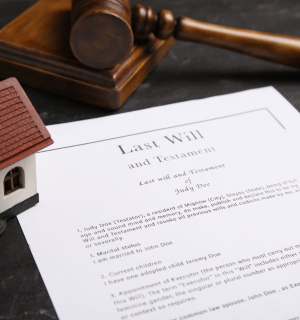
Understanding The Executor’s Role In Property Sales: What You Need To Know
In Texas, beneficiaries often wonder if they need to give permission before selling a house. The final answer depends on how much power the estate executor has been given.
An executor plays a big part in property sales because they are in charge of managing and giving out assets. As trustees, they have a duty to act in the best interests of all beneficiaries and must follow state laws.
This could mean getting permission from all the beneficiaries before the sale goes through, or it could mean letting the beneficiaries make their own decisions when the will or court says so. It is very important to know what the executor’s job is when selling a house so that the process is fair and legal for everyone.
Table Of Contents
- Understanding The Executor’s Role In Property Sales: What You Need To Know
- Navigating The Probate Process: A Guide For Executors In Texas
- The Power Of An Executor: What They Can And Cannot Do With Property
- Selling A House As An Executor: How To Handle Beneficiary Approval
- Demystifying Estate Planning: Why It’s Crucial For Executors And Beneficiaries
- Executor Or Estate Agent? Comparing Responsibilities In Property Sales
- Considering A Home Sale? An Overview Of The Executor’s Options
- Maximizing Your Inheritance: How An Executor Can Determine Distribution
- Uncovering The Puzzle Of Probate: Tips For Executors On Making Fair Decisions
- Managing Expectations: Choosing The Right Executor For Your Estate
- From Start To Finish: A Step-by-step Guide To The Probate Process
- Independent VS Dependent Administrations: Understanding The Differences
- Common Questions About Property Sales By Executors In Texas, Answered
- Protecting Your Assets Through Proper Estate Planning And Execution
- From Appraisals To Closings: Handling Property Transactions As An Executor
- Navigating Conflict Resolution With Beneficiaries During Property Sales
- Avoiding Mistakes And Missteps: Best Practices For Executors Selling Property
- Do All Heirs Have To Agree To Sell Property In Texas?
- Can An Executor Override A Beneficiary In Texas?
- What Can An Executor Not Do In Texas?
- What Powers Does An Executor Have In Texas
Navigating The Probate Process: A Guide For Executors In Texas

In Texas, executors must navigate the probate process as a primary responsibility. Selling a house without beneficiary approval can be complicated and overwhelming.
Before selling property, you should know Texas executor authority laws. Sometimes, a house can be sold without all beneficiaries’ approval, but consulting a lawyer and communicating with all parties is essential to ensure a smooth legal process.
Executors have a fiduciary duty to act in the estate’s and beneficiaries’ best interests, emphasizing the importance of careful probate management.
The Power Of An Executor: What They Can And Cannot Do With Property
A common question is whether an executor can sell a Texas house without beneficiary approval. Understanding an executor’s power and limitations is the answer to this question.
Executors can manage and distribute a deceased person’s estate according to their will and, if necessary, sell the property.
To proceed with a sale in Texas, all beneficiaries must be notified and allowed to object. The court may decide the sale if a beneficiary objects.
Executors must understand their roles and handle property properly to avoid legal issues.
Selling A House As An Executor: How To Handle Beneficiary Approval

When selling a house in Texas, the executor must understand their authority. Selling a house may appear simple, but it can become complicated when beneficiaries are involved.
According to state law in Texas, an executor can sell a house without the approval of all beneficiaries if the court grants them independent administration. This means that as long as you follow the necessary legal steps and have proper documentation, you have the right to sell the house without the consent of each beneficiary.
However, maintaining open communication with beneficiaries and involving them in decision-making is critical to avoiding potential conflicts or disputes.
Demystifying Estate Planning: Why It’s Crucial For Executors And Beneficiaries
Estate planning is important for managing a loved one’s assets after death, including knowing what powers an executor has.
People in Texas might not be sure if a house can be sold without the permission of all the beneficiaries.
To clear up this matter, it’s important to know that in Texas, an executor can sell a house even if none of the beneficiaries agree.
It is still very important for both executors and beneficiaries to know a lot about estate planning laws and procedures to make sure everything goes smoothly and fairly for everyone.
Executor Or Estate Agent? Comparing Responsibilities In Property Sales

When selling a house in Texas, the executor or estate agent is critical to the transaction’s success. However, important distinctions between their responsibilities should be understood before entering into a property transaction.
The executor has the legal authority to decide on behalf of the deceased’s estate, including property sales. They must ensure that all beneficiaries are informed and have given their consent for the sale to proceed.
The executor hires an estate agent to market and negotiate the property sale. While they lack decision-making authority, they play an important role in identifying potential buyers and facilitating the sales process.
To ensure a successful property sale in Texas, both parties must work together effectively and communicate clearly.
Considering A Home Sale? An Overview Of The Executor’s Options

When selling a house in Texas, the executor of an estate may face complex legal considerations. Depending on the circumstances and terms of the will, the executor may or may not be authorized to sell the property without obtaining approval from all beneficiaries.
This situation can be delicate because beneficiaries may have opposing viewpoints and priorities. In this situation, an executor has a few options, including seeking court approval or entering into a buyout agreement with dissenting beneficiaries.
Executors should review their legal responsibilities and consult with an attorney before making home sale decisions.
Maximizing Your Inheritance: How An Executor Can Determine Distribution
When distributing assets from a deceased individual’s estate, the executor is critical in ensuring that all beneficiaries receive their fair share.
In Texas, the executor has the authority to sell a house without the approval of all beneficiaries as long as they follow certain legal procedures and guidelines.
This can be advantageous for maximizing your inheritance because it allows the executor to make strategic decisions and determine the most efficient distribution method.
Executors must consult with legal professionals and communicate openly with beneficiaries to ensure that the distribution process is transparent and fair.
Uncovering The Puzzle Of Probate: Tips For Executors On Making Fair Decisions

It is important for you, as an executor in Texas, to know how much power you have to sell a house without the permission of all the beneficiaries.
Even though probate can be hard to understand, it is very important for executors to be careful when making decisions so that everyone is treated fairly.
To achieve this, you may need to obtain legal counsel, have an honest conversation with the beneficiaries, and ensure that you comprehend the contents of the will in its entirety.
By following these tips and figuring out the puzzle of probate, executors can be sure that they are doing their job and honoring the wishes of the person who died.
Managing Expectations: Choosing The Right Executor For Your Estate
Picking the right executor is very important if you want to manage people’s expectations about your estate. In Texas, the executor has a lot of power over the estate of the person who died, which includes selling the person’s house.
This process can get tricky, though, if some beneficiaries don’t agree with the sale. It’s important to pick an executor who you can trust, who is organized, and who knows what their duties are.
They should also be good at talking to people and know how to handle any problems that might arise with beneficiaries. You can make sure that your wishes are carried out smoothly and effectively after you die by carefully choosing your executor.
From Start To Finish: A Step-by-step Guide To The Probate Process

The probate process can be complicated and intimidating, particularly when it comes to executor authority and Texas home sales. Executors play a key part in running an estate, and they also handle selling any property that the departed owned.
When some beneficiaries disagree with the sale, though, things can get complicated. Can one, therefore, sell a house without the consent of every beneficiary? The answer is yes, but efficiently navigating the probate process requires following a detailed guide.
This article will cover everything you need to know about selling a house in Texas during probate, from getting testamentary letters to meeting legal requirements and getting court approval.
Independent VS Dependent Administrations: Understanding The Differences
Selling a house as an executor in Texas can be a complicated and confusing process. One important factor to consider is whether the estate is administered independently or dependently.
In an independent administration, the executor has greater discretion to make decisions without seeking approval from beneficiaries. This can speed up the house-selling process, but it also increases the risk of conflicts with beneficiaries.
In contrast, in a dependent administration, the executor must obtain approval from all beneficiaries before making any major decisions, such as selling a home. While this may take longer, it protects against potential disputes and ensures that all beneficiaries have a say in the house’s sale.
Understanding these distinctions is critical for executors as they navigate their responsibilities and ensure a smooth house sale during probate in Texas.
Common Questions About Property Sales By Executors In Texas, Answered

As an executor in Texas, you may have a lot of questions about what powers and permissions you need from the beneficiaries in order to sell a house. People often want to know if a house can be sold without the permission of all the beneficiaries.
The answer isn’t simple because it depends on many things, like what the will says, what kind of property is owned, and whether there are any disagreements among the beneficiaries. In most cases, an executor can sell a property as long as the court agrees or all the beneficiaries agree.
There are times, though, when a beneficiary’s refusal to approve could cause delays or legal problems. For the Texas property sale process to go smoothly, executives must fully understand their roles and responsibilities and communicate clearly with everyone involved.
Protecting Your Assets Through Proper Estate Planning And Execution
Protecting your assets should be the most important thing you do when planning and carrying out your estate. This is very important when looking into executor power and selling a house in Texas without the permission of all the beneficiaries.
If you don’t take the right precautions, your assets could be at risk of disputes and challenges from beneficiaries. It is important to have a solid estate plan and carefully choose an executor who can sell any property so that your wishes are carried out and your assets are kept safe.
These steps will help you protect your assets and give you and your family peace of mind while you plan your estate.
From Appraisals To Closings: Handling Property Transactions As An Executor

One of your main jobs as an executor is to take care of the person’s property after they die. This includes things like selling a house and other property deals.
In Texas, there are certain rules that must be followed if you want to sell a property without getting permission from all the beneficiaries. It can be hard for an executor to do everything that needs to be done, from getting appraisals to navigating the closing process.
It’s important to know what your legal rights and responsibilities are as an executor if you want to handle property transactions well. If you know what to do and get help, you can make sure that a house is sold legally and in the best interests of everyone who will benefit.
Navigating Conflict Resolution With Beneficiaries During Property Sales
The executor’s authority is very important when selling a house in Texas. Still, when not every beneficiary agrees with the choice, things can become more difficult.
Such situations call for conflict resolution. A seamless property sale depends on your ability to navigate this sometimes difficult procedure.
To arrive to a mutually acceptable solution, it is imperative to carefully weigh the interests and viewpoints of all beneficiaries and to communicate with them. This might entail going to mediation or legal counsel to resolve disputes that come up during the sale of the property.
The secret to selling a Texas home without the consent of every beneficiary is ultimately resolving disputes with them.
Avoiding Mistakes And Missteps: Best Practices For Executors Selling Property

When selling property in Texas as an executor, it’s important to know what powers and duties come with the job. It’s a common mistake to try to sell a house without getting permission from all the beneficiaries first.
This could make the law more difficult and slow down the process. To avoid this mistake, executors must carefully talk to all beneficiaries and get their permission before selling any property.
Also, doing things the right way, like getting professional help, properly valuing the property, and keeping detailed records, can help avoid mistakes and make sure the transaction goes smoothly. As the executor, you need to be very careful during the selling process and follow all state laws to do your job well.
Do All Heirs Have To Agree To Sell Property In Texas?
Many people in Texas wonder if all of the heirs must agree to the sale of property for it to go through. When there are multiple beneficiaries and an executor who has power over the estate, this problem usually comes up.
In this case, it’s important to know the Texas laws about executor authority and how they apply to selling a house. Many people think that all beneficiaries must agree to the sale of a property before it can happen, but this isn’t always the case.
Actually, there are times when an executor might be able to sell a house without getting permission from every beneficiary. However, executors and beneficiaries need to know what their rights and duties are in these situations to stay out of trouble with the law and avoid conflicts.
Can An Executor Override A Beneficiary In Texas?
Many questions arise when discussing executor authority in Texas. One common question is whether an executor has the power to override a beneficiary. Yes, but there are some limitations to consider. In Texas, the executor is given the authority and duty to handle and distribute the assets of the estate in accordance with the wishes of the deceased.
They can make decisions about selling property, like a house. Nevertheless, this authority is not without limitations and must be carried out in accordance with state laws and any directives specified by the deceased in their will.
Although an executor has the authority to make decisions without requiring unanimous agreement from all beneficiaries, it is crucial for them to act in a fair and thoughtful manner, taking into account the well-being of all individuals involved.
What Can An Executor Not Do In Texas?
When it comes to an executor’s authority in Texas, certain limitations must be followed. A common question is whether an executor can sell a house without all beneficiaries’ approval.
According to Texas state law, an executor may sell a house without the consent of all beneficiaries, but only under certain conditions. Estate sales may be necessary to cover debts or expenses.
An executor, on the other hand, cannot use their authority to benefit personally or to act against the best interests of the beneficiaries. Executors must understand their responsibilities and limitations to avoid legal issues during the probate proceedings.
More Texas Probate Resources
What Powers Does An Executor Have In Texas?
In Texas, an executor’s role is to oversee the distribution of a deceased person’s assets in accordance with their will. However, one common question is whether an executor has the authority to sell a house without the consent of all beneficiaries.
The solution lies in understanding the powers granted to an executor in Texas. According to state law, the executor has broad authority to manage and dispose of the estate’s assets, including the sale of real estate.
This power does not require consent from all beneficiaries but rather fulfilling their fiduciary duty and acting in the estate’s best interests. To avoid potential conflicts or challenges, an executor must communicate with beneficiaries and involve them in major decisions, such as selling a house.
Finally, investigating executor authority in Texas reveals that, while they have significant powers, they must still follow legal obligations and consider beneficiaries’ wishes when making decisions about property sales.
These findings apply to all cities in Texas, including Houston, Dallas, Austin, San Antonio, Fort Worth, El Paso, and more.
Please don’t hesitate to contact us at (214) 225-3042 for any inquiries or to learn more about us. We’re here to help and look forward to hearing from you.
Get Cash For Your Texas House Today
We buy houses in Texas without the hassle and red tape. Get your no-obligation cash offer for your home and just be done. Selling in as-is condition has never been easier.
| HEIRSHIP | COURTS | LAWYER | BREACH OF FIDUCIARY DUTY | CASH | |
| SURROGATE’S COURT | COUNTY SURROGATE | PRICE | MARKET PRICE | MARKET VALUE | INFORMATION |
| CONTRACT | CHILDREN | CHILD | CHILDHOOD | TAXES | TAX |
| DECEDENT | AUCTION | PHONE | REAL PROPERTY | REAL ESTATE AGENT | REAL ESTATE BROKER |
| MORTGAGE | MORTGAGING | JURISDICTIONS | HOUSTON | HOUSTON, TX | FAIR MARKET VALUE |
| BLOG | OWNERSHIP INTEREST | TENANTS | FEES | CREDITORS | LENDER |
| JOINT TENANCY | SURVIVORSHIP | BANK | TERMS OF SERVICE | STATUTE | SELF-DEALING |
| PRIVACY POLICY | PRIVACY | PETITION | MANAGEMENT | LIQUIDATING | LIQUIDATION |
| LIFE ESTATE | LAWSUIT | LITIGATION | JUDGE | INVESTMENTS | ADVERTISING |
| THE EXECUTOR IS | IN THE WILL | AN EXECUTOR SELL | IF THE WILL | THE EXECUTOR CAN | CAN AN EXECUTOR SELL |
| THE EXECUTOR CAN SELL |

